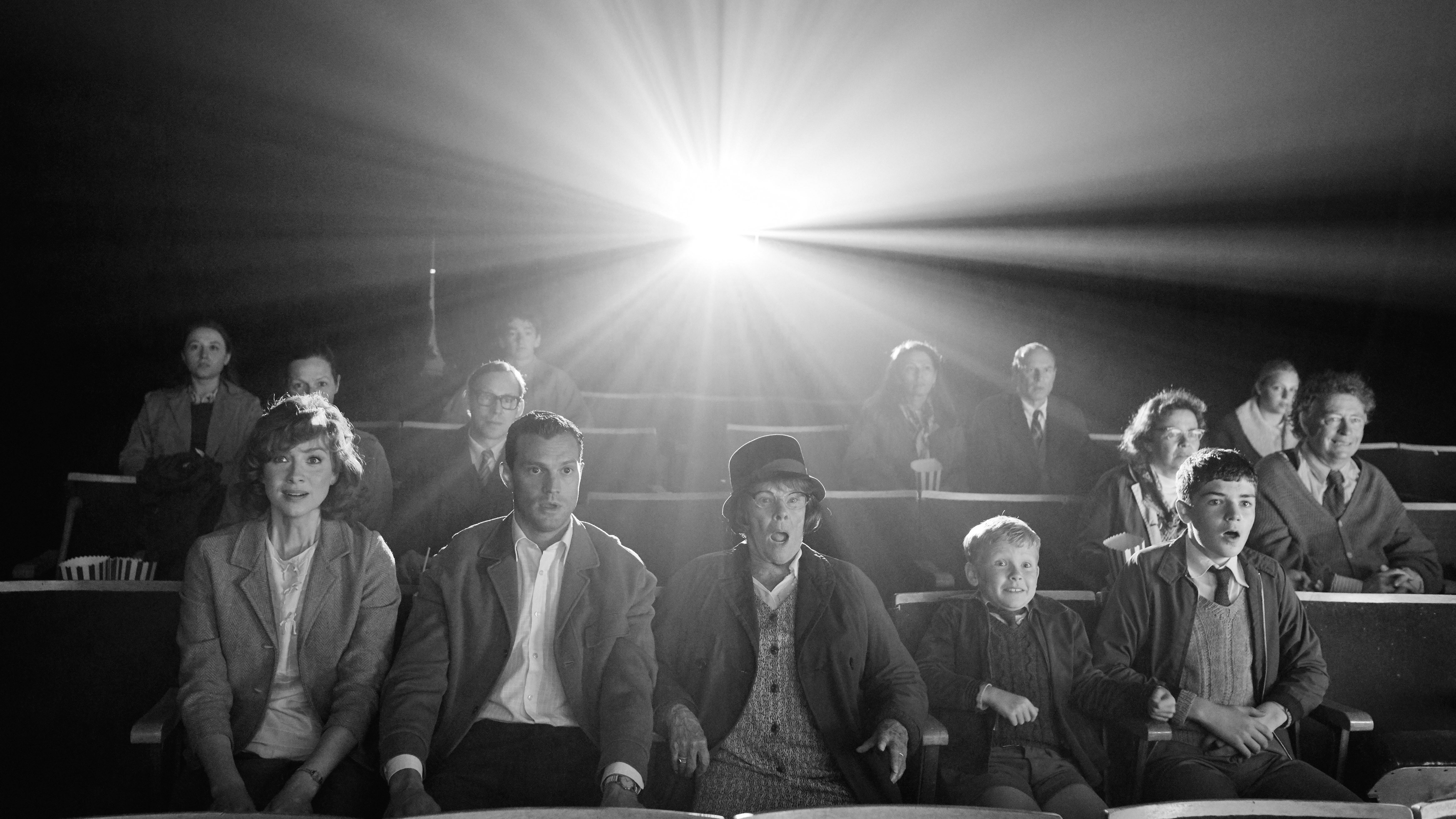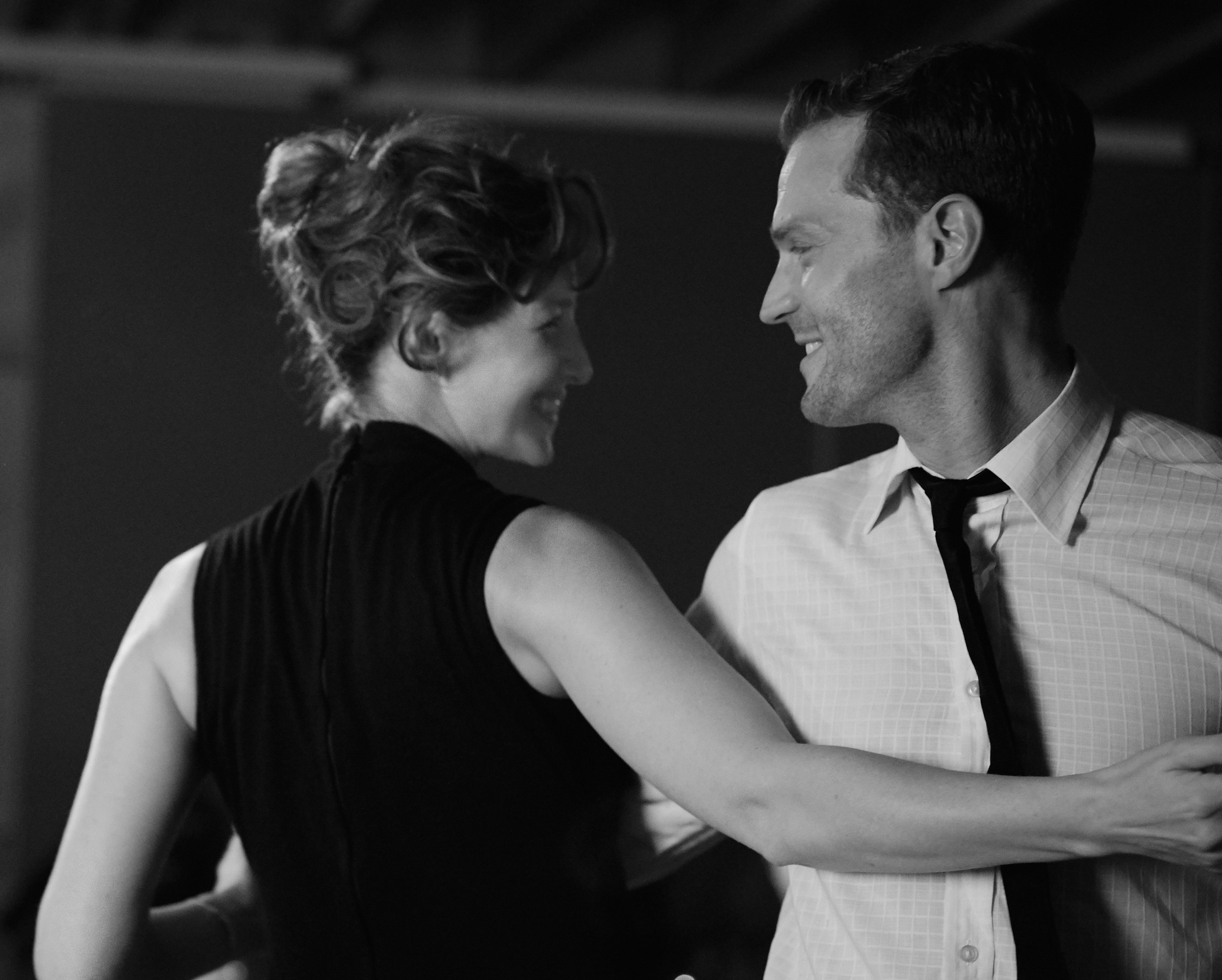

When I think of Kenneth Branagh, the unfortunate truth is I tend to think of his truly histrionic 1994 adaptation of Frankenstein. There’s a particular scene in which Branagh, Helena Bonham Carter, et. al., are running across the front lawn of their manor house carrying the body of someone who’s been killed by the Creature (Robert De Niro!), wailing in truly operatic fashion. Like, they may as well be gnashing their teeth and rending their garments, it’s that hilariously overwrought. For the past decade or so, he’s mostly used that flair for overstatement in the service of Hollywood blockbuster IP: Thor (2011), Cinderella (2015), Murder on the Orient Express (2017), Artemis Fowl (2020).
Belfast, his latest film is a far more intimate affair. Shot mostly in black and white and based on Branagh’s own childhood in Northern Ireland, the film is a bit of a throwback to the kind of coming-of-age movies that have been mostly muscled out of the multiplexes by…well, by the sort of movies Branagh himself has been directing for the past decade, actually. Wee Jude Hill stars as wee Buddy, a precocious lad growing up in the late 1960s on a harmoniously mixed Catholic and Protestant street in Belfast. We’re introduced to that bustling residential street, and to Buddy’s world, in a long opening tracking shot that plays a bit like the opening number of a musical. Kids running about, parents smiling, neighbors chatting, Van Morison playing.
Branagh doesn’t let us linger in this idyllic scene for long though. No sooner is Buddy called home for supper by his Ma (Caitríona Balfe) than a mob arrives and a riot targeting the street’s Catholic residents breaks out. We’re in the thick of The Troubles, and the conflict provides the film’s backdrop. Buddy’s Pa (a soulful Jamie Dornan), who works “over the water” in England, wants out of Northern Ireland. There’s a local tough (Colin Morgan) trying to enlist him in the effort to cleanse Belfast of Catholics, but he wants no part of the escalating violence. Ma, on the other hand, can’t imagine life away from the only home she’s ever known. Buddy, meanwhile, wants nothing more than to be the best footballer in the world and to marry his classroom crush.

Belfast is a memory of Branagh’s childhood, and as such the story is told largely from Buddy’s 9-year-old perspective. We see the barricades at the end of the block and catch glimpses of the civil unrest on TV. But the film is more concerned with the family drama in Buddy’s home. There are decisions to be made. Buddy puzzles over a parable about a forked path, as told by a particularly bellicose pastor; one virtuous road leading to salvation, the other to hell. For Ma and Pa, the choices are more immediate: should they stay or should they go now? And whatever they decide, can they keep their family from falling apart?
Cinematographer Haris Zambarloukos does some lovely work with natural light. In a couple different scenes, he allows the sunshine filtering in through windows to dim and then suddenly brighten again, not to punctuate a particularly meaningful line, but just as it would in real life, as clouds drift across the Irish sky briefly obscuring the sun on a windy day. It has the feel of a sense memory, the kind of thing that sticks with you for no particular reason when you recall a last conversation with a loved one.
That kind of detail is truly lovely, and the performances by Balfe and Dornan—not to mention Ciarán Hinds and Judi Dench as Buddy’s grandparents—are heartfelt. Ultimately, though, Belfast is a fairly standard, inoffensive coming-of-age film, an exercise in Boomer-era nostalgia that is, nonetheless, sure to appeal to a certain significant faction of Oscar voters. There will be—perhaps unfairly—comparisons to Alfonso Cuarón’s Roma. Like that 2018 film, Belfast is already considered a frontrunner for Best Picture. Branagh may not have reinvented cinema here, but if his film does win the top prize at the Oscars, it wouldn’t exactly be cause for gnashing of teeth and rending of garments.














